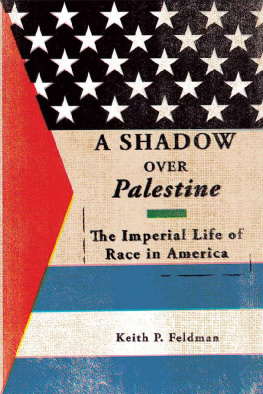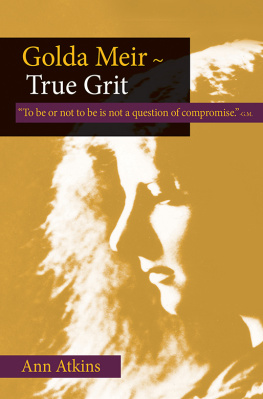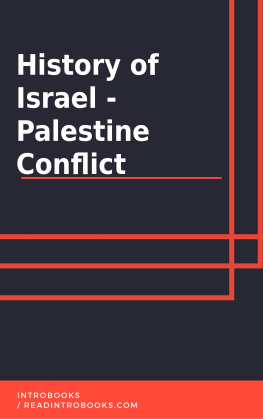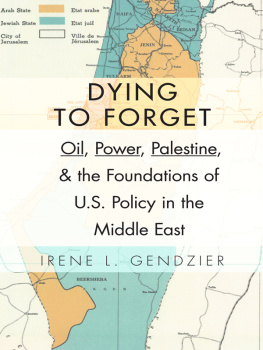A Shadow over Palestine
A Shadow over Palestine
The Imperial Life of Race in America
Keith P. Feldman

University of Minnesota Press
Minneapolis | London
The University of Minnesota Press gratefully acknowledges financial assistance for the publication of this book from the John C. Flanagan Dissertation Fellowship and the Graduate School at the University of Washington.
Poems by June Jordan are reprinted in chapter 5. All poems copyright 2005 by the June M. Jordan Literary Estate. Reprinted with permission. www.junejordan.com .
An earlier version of part of chapter 2 was published as Representing Permanent War: Black Powers Palestine and the End(s) of Civil Rights, CR: New Centennial Review 8, no. 2 (Fall 2008): 193231; copyright 2008 by Michigan State University; reprinted by permission. Another part of chapter 2 was previously published as Towards an Afro-Arab Diasporic Culture: The Translational Practices of David Graham Du Bois, ALIF: Journal of Comparative Poetics 31 (2011): 15272; reprinted with permission.
Copyright 2015 by the Regents of the University of Minnesota
All rights reserved. No part of this publication may be reproduced, stored in a retrieval system, or transmitted, in any form or by any means, electronic, mechanical, photocopying, recording, or otherwise, without the prior written permission of the publisher.
Published by the University of Minnesota Press
111 Third Avenue South, Suite 290
Minneapolis, MN 554012520
http://www.upress.umn.edu
Library of Congress Cataloging-in-Publication Data
Feldman, Keith P.
A shadow over Palestine : the imperial life of race in America / Keith P. Feldman.
Includes bibliographical references and index.
isbn 978-1-4529-4487-6
1. Middle EastForeign relationsUnited States. 2. United StatesForeign relationsMiddle East. 3. United StatesRace relations. 4. Arab-Israeli conflictInfluence. I. Title.
DS63.2.U5F39 2015
327.73056dc23
2014047486
The University of Minnesota is an equal-opportunity educator and employer.
Contents
James Baldwin in the Holy Land
A T THE END OF S EPTEMBER 1961 , James Baldwin arrived in Tel Aviv as the guest of the Israeli government. Treated as what he called an extremely well cared for parcel post package, Baldwin spent his days being escorted around this fragile handkerchief at the gate of the Middle East. He was driven to the Negev desert in the south, the Dead Sea to the east, the Jerusalem hills, Tel Avivs famed cafs, Haifas art colony in the north, and a kibbutz near the Gaza Strip in the west. Israel and I seem to like each other, he wrote in a letter to his literary agent. I am always worried about wearing out my welcome, and imagined Id be gone by now: but no, they keep saying, Please dont hurry.
In Baldwins luggage were unfinished manuscripts for two of what would become some of his most influential works, prophesying a decade of widespread social upheaval. These manuscripts bore witness to Cold War Americas fantasies of Black incorporability into a U.S. racial formation understood as predicated on a mercurial white supremacy. One manuscript, largely complete, became the novel Another Country, which he finished soon thereafter in Istanbula city whose prominent location at the crossroads of Europe and Asia would come to shape Baldwins lifeworld for much of the forthcoming decade. Against this ontological exclusion, Baldwin saw in the Nation of Islam a capacity to name and organize a political imaginary that, at its most powerful, provided Black people in America a radically alternative epistemology.
But Baldwin was in Israel for neither of these projects. The New Yorker had forwarded him a substantial advance to write a book about Africa in the age of decolonization, and the Israel trip served as what Baldwin called its prologue (49). For many, the new Jewish state, founded in the ashes of the British mandate, exemplified the promise of political independence in an age of widespread decolonization. Yet a reading of the Israeli section of the draft manuscript will make clearer than any of my letters can, how complex, once I got to Israel, the whole idea of Africa became (52). So complex, it seems, that the book never came to fruition. As Baldwin recalled later, When I was in Israel, it was as though I was in the middle of The Fire Next Time. I didnt dare go from Israel to Africa, so I went to Turkey, just across the road.the reader ask his own questions and make his own assessments (52). Rather than rely on the positivistic investments of a journalism meant to transparently reflect a stable reality, Baldwins time in Israel required a different kind of writing practice, one hinged on readerly interpretation.
Since the Africa book never came to fruition, Baldwin ended up sending the New Yorker Down at the Cross instead. This was an essay he had promised to the rival Commentary magazine. Cavalierly submitting it to the New Yorker instead angered Commentary s editor, Norman Podhoretz, so much so that Podhoretz ended up writing his own riposte, called My Negro Problemand Ours, which, in the face of race radical critiques of Cold War liberalisms contradictions, will come to hold its own pride of place in the canon of neoconservative thought.
Baldwins published writings on Israel make for especially evocative reading in the present. The letters from the end of 1961 signal the dawn of a new conjuncture. The conundrums Baldwin finds in Israel inspire critical reflection on the emergence, function, and effects of a new nation-state dedicated to ending the oppression of Euro-American modernitys others. His letters likewise offer a thick enactment of relationality, a kind of gateway through which to consider how one might navigate a fractured Cold War terrain with eyes wide open to its racial connections, convergences, contradictions, and incommensurabilities. Baldwin writes:
In a curious way, since it really does function as a homeland, however beleaguered, you cant walk five minutes without finding yourself at a border, cant talk to anyone for five minutes without being reminded first of the mandate (British), then of the warand of course the entire Arab situation, outside the country, and, above all, within, cause one to take a view of human life and right and wrong almost as stony as the land in which I presently find myselfwell, to bring this thoroughly undisciplined sentence to a halt, the fact that Israel is a homeland for so many Jews (there are great faces here, in a way the whole world is here) causes me to feel my own homelessness more keenly than ever. (49)
From the vantage point through which Baldwin viewed the racialized exclusions of American Cold War liberalism, the overwrought, circuitous, and internally interruptive form of this thoroughly undisciplined sentence crystallizes precisely how overdetermined the question of Israel had become. Baldwin recognizes Anglo-American sovereigntys persistent imprint in how the routine navigation of the region constantly confronted the pervasive bordered contours of political space. Daily interactions were infused with the continuing effects of a war whose definite article presumes a reader knows which war Baldwin means to reference. The wars singular referent is quickly adumbrated by reflections on the simultaneous internalization and externalization of the entire Arab situation outside, and above all, inside Israel. We are invited to understand this stony view of human life and its sharp morality as the effect of the wars continuous present, one that contorts the very grammar of its narration and solidified Baldwins own sense of homelessness. In the face of the Israeli states nation-building process, Baldwin reconciles himself with his own commitment to exile. If this was what home meant for modernitys others, Baldwin will have none of it.
Next page










